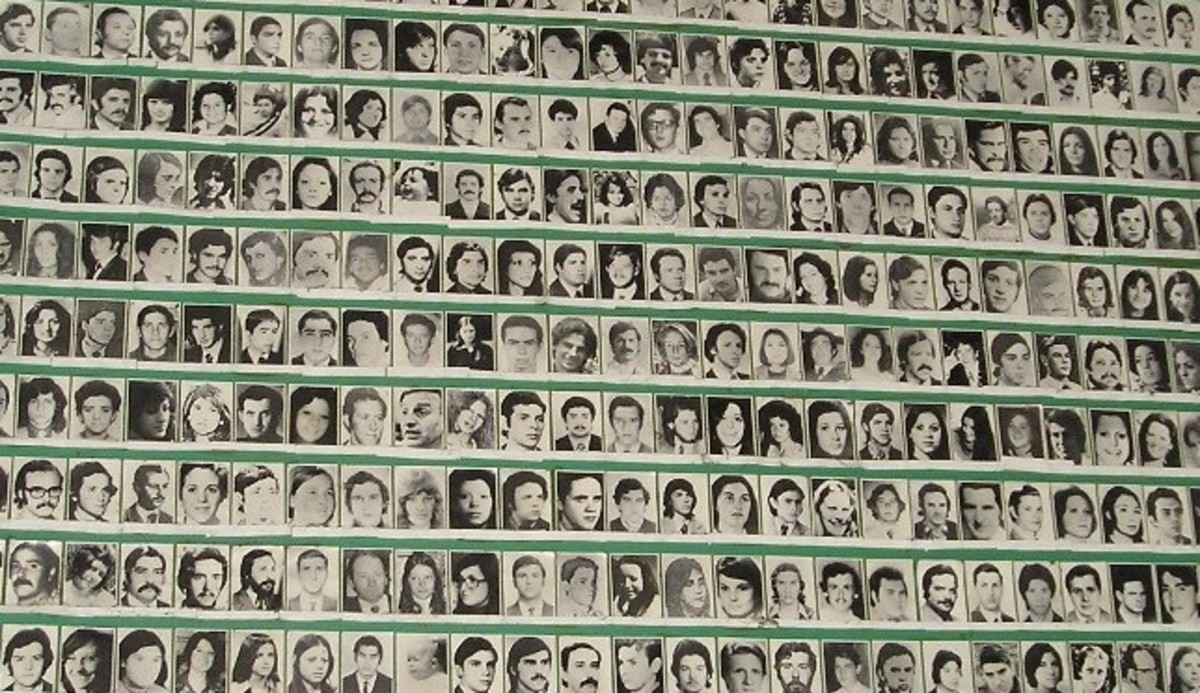Sexism in Brazil
From a very young age I watched a naked woman dancing samba between commercials on national television. Her unmentionables were covered, but everything else was out, though some might consider body paint as a type of covering. She danced every year during the Carnaval period to celebrate samba. Her title is that of Globeleza (A mix of the channel’s name Globo and the Brazilian word for beauty) and she reigns the commercial breaks from January to mid-February. Since 1991, three different women have been crowned, and taken away the honour because they got too old to be naked on screen.
I am told Globeleza is paying homage to samba and carnival. That the tradition is firmly weaved into the Brazilian society and that there is nothing wrong with that. Appreciating female bodies is honouring women, not demeaning them. They feel empowered. Showing off their ‘perfect’ bodies they have worked hard to tone and shape, just so they can be the ‘correct’ size. They tell me that she is naked to show the movement of the dance, the beat of her body.
If this is the case, why isn’t there a man dancing by her side to show off his body?
Maybe I should have started this essay differently. From a very young age I have been obsessed with having a flat stomach and a tiny waist because of a naked lady dancing on TV. She’s really beautiful, and her sculpted body makes me feel unworthy and not very pretty. Of course, all teenagers have body images issue, and I don’t believe I had it any worse than the rest of the world - but it’s scary to consider that at the time I felt this tradition was normal and perhaps even empowering (“We can wear what we want, or not wear anything at all!”), because of the culture I was brought up in.
The debate of tradition versus objectification of women has been playing on my mind for a few years and it’s difficult to explain why I feel that years of samba and dancing should somehow change to make women in Brazil safer, to make girls believe their bodies are beautiful despite their round stomachs. Despite these obvious body image issues, the emphasis samba and the media puts on women’s half naked (or completely naked) bodies instils a fear in me that is unshakable. Perhaps it can be concealed at times but the truth is, Brazil is still very backwards in terms of gender equality, misogyny and sexism.
"From a very young age I have been obsessed with having a flat stomach and a tiny waist because of a naked lady dancing on TV."

Feminism is considered a dirty word by many. But I like to think sexist is considered a dirty word by most. In Brazil, however, I have heard men say they are sexist and 100% proud of it.
“I want my wife to stay at home, cook for me, take care of the children and never have a career,” said one of them.
This sprung a huge Facebook argument (ain’t that always the way?) about equality and sexism. But he wouldn’t back down.
“The woman’s place in a household is in the kitchen,” he concluded.
During the discussion, I felt him despise me for speaking out against him. I felt belittled, hated, ridiculed and just plain hurt. I shouldn`t feel guilty for being a woman, or having a voice, an opinion – but somehow, at that moment, I did. I shouldn’t feel guilty for wanting and knowing that feminism hasn’t quite reached its goal yet. I shouldn’t be ashamed of the fact I want women to be safer from domestic violence, rape and sexual harassment. I shouldn’t ignore the fact that while I know men also suffer from these transgressions, women are the main target and for that reason men don’t find it particularly important to enforce protection. It doesn’t affect most of them, so why should they care?
That man was shaming me and my opinions. Worse, he was disregarding plain facts in favour of his interests. I would love to say this was the only time it happened but I have been shut up by ‘friends’ in the same fashion before. I’m a ‘bitch’ if I stand up for myself, you see. And my body is free to be touched because I am simply an object and I shouldn’t be allowed to speak.
In my teenage years, I tried to be one of the boys. How funny were those sexist jokes! And how hilarious were those inappropriate sexual invitations that could be taken seriously or not! That’s what every woman wants, right? To be sexually harassed so that her attractiveness is validated.
I am a hypocrite, of course, because I accepted it all. I took a lot of crap for not knowing it was crap. Being one of the boys means taking everything as a joke, nothing is really serious, they aren’t really threatened by your sex, they’re not really looking down on you. It’s all in my head because I’m on my period. Every girl goes through this necessity to feel validated by others, in particular, by boys. But to this day I can sense the lack of respect in Brazilian men’s rhetoric, I can tell they look down on me and think I am a ‘femi-nazi’ and that I hate men. Nowadays I can speak against them because I have educated myself, but what about women who have only ever been treated this way their whole lives and think this is normal?
Our female president seems to represent a progressive country in terms of gender equality, but that is simply not true. I admire Dilma Rousseff for representing my gender in the highest post of government, as I admire the CEO for Petrobras Maria das Graças Foster. Inspiring women, of course – but they are simply not who most little girls in this country look up to. They look up to the half-naked women in our hyper-sexualized Carnival, the women on magazines who have a Photoshop-esque perfection.
"Sometimes I feel guilty - did I have to be so rude? But why do I think that? The men who try to harass me are in the wrong, not me."

Drum queens for example are the dream ‘profession’of many little girls. Their objective is to energize the samba school’s bands by dancing half-naked in front of them, leading them to the end of the parade. Is men lusting after our bodies really the Brazilian female’s dream? And if so, how can people not see what wrong with that?
I have written before that this is objectification of women in its truest form. Using a woman as a figurehead to keep up the spirits of male troops following behind is simply using her, even if she does feel somehow empowered. Complete nudity is acceptable, sometimes desirable. But even the least revealing outfits for this position are as small as thong bikinis.
This objectification can stretch throughout the whole year, but during Carnival a free-for-all environment combined with objectification results in an increase in harassment, hate crimes and rape, according to the Observatory of Racial Discrimination, Violence Against Women and LGBT 2012.
I feel intimidated every day when I walk home from work. Each step I take toward the bar that stands in front of my apartment building is uncertain, every time thinking of a way to avoid it at all costs. The men stand outside, or sit inside and watch the people walk by, and seemingly for no reason at all I always expect to be harassed by them. I usually cross the street before I reach that corner.
On nights out, men are aggressive. They pull me towards them, as if I would be crazy not to welcome their approach. They touch me without invitation. I have no idea who they are. I have taken to be verbally aggressive to any men that dance near me, pulling my hand away quickly if they make a grab for it and swearing at them to go away. Sometimes I feel guilty - did I have to be so rude? But why do I think that? The men who try to harass me are in the wrong, not me. I shouldn’t feel guilty for distancing myself from this kind of behaviour, but then I am called a ‘bitch’, ‘frigid’, ‘boring’ and a ‘prude’.
Once, after a ridiculous attempt to talk to me in a club, a man was so outraged that I had not fallen for his unwitting charms that he pulled down his trousers right there and then. At the time it was funny and a story we told for years, but in hindsight I can see he felt that my reaction should have been to immediately drop my pants and service him somehow.
When I walk to work in the mornings, it is somehow worse than walking home. At seven in the morning I was ‘hit on’ twice and nearly harassed by a homeless man in the last four months. They looked me up and down and made comments on my appearance, shaming me way before 8AM.
Many men might ask why can’t I take it as a compliment. Well, simply because I am not a piece of meat and I refuse to accept I am only valued by my exterior appearance. I simply refuse to, and I will give an example of what accepting (and challenging) this can result means in this country.
"Fear of the words ‘frigid’, ‘bitch’, ‘boring’ and ‘prude’ can easily overpower 18-year-old women. They don’t want to be socially ostracised."
In a São Carlos university there is also a tradition that refuses to be trumped. As an initiation ceremony women are made to walk down a catwalk for a ‘beauty contest’ and obey orders from senior male students. It can be truly humiliating as they are made to simulate sex acts with blow up dolls and phallic objects, and sometimes are even told to take their tops off. They are treated like ‘new meat’ and are treated like sexual objects whose only purpose is to entertain the men present. But if they freely participate in the event and obey isn’t it their fault that they are being ridiculed and treated like pieces of meat? The fact that they accept this surely gives more power to men?
Fear of the words ‘frigid’, ‘bitch’, ‘boring’ and ‘prude’ can easily overpower 18-year-old women. They don’t want to be socially ostracised on their first week of university, or be known as the girl who doesn’t know how to take a joke.
Though there were many women who participated in the initiation, there were also some who protested against it. The group Frente Feminista (Feminist Front) stood near it with signs to show their dissatisfaction. To the drunk men running the event this was simply an outrage. They got belligerent, verbally abusive and a couple even tried to attack the feminists. They dropped they pants, clutched their penises to embarrass them and simulated sex in front on them with blow up dolls. This happened in one of the best universities of Brazil, Universidade de São Paulo (USP).
So tell me, what’s the answer? In both instances women are being harassed and belittled by men, who are supposedly intelligent and progressive enough to study in one of the best universities of Brazil. In both situations we are being punished. Either way we are whores or frigid feminists who hate men.
And this type of thing isn’t just the actions of unruly, drunk young adults. Just last week I saw an advert for a saleswoman in a clothes shop. The requirements were the following: young, beautiful, vain, nice, responsible and clothes size only 8 to 12, please. A polite way to say ‘no fatties or ‘uglies’.
I have learned two things from all of this. First, that this type of attitude is everywhere and is far from being extinguished. Second, that if I shut up we will be even more far away from its extinction. If I don’t shut up, if I keep pushing against tradition, if I speak louder than those trying to shut me up, maybe one day I’ll feel safe walking to and from work.








